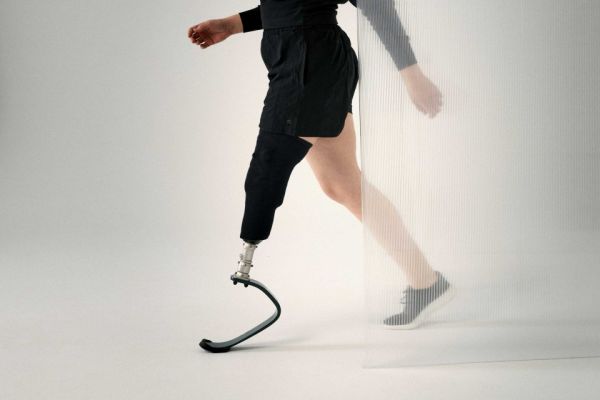Challenging Insurance
Author: Thrive Staff Writer

In the world of healthcare, where policies and procedures differ from province to province, an endless list of stakeholders are clamouring for the attention of the policymakers in the health and insurance claims departments.
Many of these health profession stakeholders, orthotists and prosthetists included, must actively substantiate claims that are submitted for treatments provided to their patients.
In the orthotic and prosthetic world, an increasing amount of time is being spent by certified orthotists CO(c) and certified prosthetists CP(c) addressing challenges pre sented by the claims process for both public and private healthcare insurance. It is important that payer policies are aligned with today’s en vironment and keep pace with the innovations to ensure that patients have access to solutions that allow them to function effectively and pain free. Importantly, today’s environment includes patients themselves to push new limits and redefine what is possible.
One of the unique aspects of orthotics and prosthetics is that treatments are custom-designed and specific to the patient’s condition and lifestyle requirements. Certified orthotists and prosthetists are specialists in assessing patients and matching their clinical and daily living needs to the most appropriate device.
Critically important to both patients and practitioners is the ability to be reimbursed for the treatment provided and received. Sometimes, policies may limit the options available for treatments, despite what is in the patient’s best interests. Often, a policy requires the “lowest cost option” rather than the “most appropriate option”. In order to change such policies, advocacy initiatives are needed to present evidence as to why a change makes sense. Patients have a right to proper mobility, functionality and security, which is what the most appropriate device and customized treatment plan works to achieve. Yet, unless there is evidence for the most appropriate treatment plan achieving the desired objectives, the messaging from professionals remains anecdotal.
This is where the patient comes in… the most effective voice is that of the patient him or herself. When patients are involved, decision makers are more apt to listen. Patients can play an important role in communicating with insurers and health departments about their experiences to not only help themselves, but to pave a path for future patients as well.
Evidence that the most appropriate device is the best option rests in the patient experience. This includes patient stories about how their prosthetic treatment plan impacted their lives.
Orthotics Prosthetics Canada (OPC) wants to hear your story so that we can share evidence that supports the need for the most appropriate device and the difference it makes in patients’ lives.
OPC wants to work with organizations representing patient groups, such as The War Amps, to change these policies. OPC and The War Amps are currently partners in a number of initiatives and have an agreement to work together to facilitate the best patient outcomes possible.
April is Limb Loss Awareness Month. But the opportunity to share stories and evidence with policy makers and insurers to encourage positive and inclusive change isn’t reserved to one month on the calendar. It needs to happen all year long. Please consider sharing your story so that we can help educate important stakeholders. Contact OPC atThis email address is being protected from spambots. You need JavaScript enabled to view it. or talk with your prosthetist about how you can be part of the change.
In the orthotic and prosthetic world, an increasing amount of time is being spent by certified orthotists CO(c) and certified prosthetists CP(c) addressing challenges pre sented by the claims process for both public and private healthcare insurance. It is important that payer policies are aligned with today’s en vironment and keep pace with the innovations to ensure that patients have access to solutions that allow them to function effectively and pain free. Importantly, today’s environment includes patients themselves to push new limits and redefine what is possible.
One of the unique aspects of orthotics and prosthetics is that treatments are custom-designed and specific to the patient’s condition and lifestyle requirements. Certified orthotists and prosthetists are specialists in assessing patients and matching their clinical and daily living needs to the most appropriate device.
Critically important to both patients and practitioners is the ability to be reimbursed for the treatment provided and received. Sometimes, policies may limit the options available for treatments, despite what is in the patient’s best interests. Often, a policy requires the “lowest cost option” rather than the “most appropriate option”. In order to change such policies, advocacy initiatives are needed to present evidence as to why a change makes sense. Patients have a right to proper mobility, functionality and security, which is what the most appropriate device and customized treatment plan works to achieve. Yet, unless there is evidence for the most appropriate treatment plan achieving the desired objectives, the messaging from professionals remains anecdotal.
This is where the patient comes in… the most effective voice is that of the patient him or herself. When patients are involved, decision makers are more apt to listen. Patients can play an important role in communicating with insurers and health departments about their experiences to not only help themselves, but to pave a path for future patients as well.
Evidence that the most appropriate device is the best option rests in the patient experience. This includes patient stories about how their prosthetic treatment plan impacted their lives.
Orthotics Prosthetics Canada (OPC) wants to hear your story so that we can share evidence that supports the need for the most appropriate device and the difference it makes in patients’ lives.
OPC wants to work with organizations representing patient groups, such as The War Amps, to change these policies. OPC and The War Amps are currently partners in a number of initiatives and have an agreement to work together to facilitate the best patient outcomes possible.
April is Limb Loss Awareness Month. But the opportunity to share stories and evidence with policy makers and insurers to encourage positive and inclusive change isn’t reserved to one month on the calendar. It needs to happen all year long. Please consider sharing your story so that we can help educate important stakeholders. Contact OPC at








 How to resolve AdBlock issue?
How to resolve AdBlock issue?